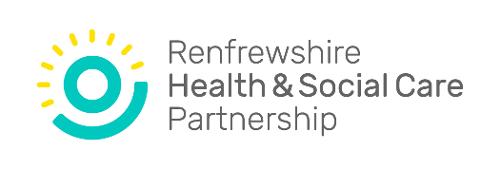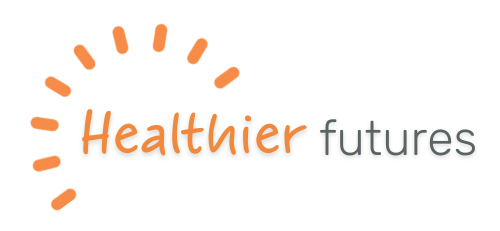Prevention and Early Intervention
What do we mean by Prevention and Early Intervention?
For every care group, and our wider population, there are things that can help prevent ill-health, both physical and mental, enable people to remain at home for longer, delay the need for medical intervention and ultimately achieve better outcomes for people. However, preventative factors can be challenged by deep-rooted inequalities which impact on the health and wellbeing of our local residents.
Early intervention can include providing people with information about services and resources in their local areas, promoting active and healthy lifestyles and providing training on specific topics. We can also look to intervene at the earliest stages in life to support our children to have the best start possible.
Community-led support and joint working with our partners, the third sector and community groups is vital to tackling these challenges, as well as encouraging people to ask for help or advice at an early stage before they feel they are at crisis point. If we intervene early we can build on the breadth of skills and experience of people in Renfrewshire to create capacity within our communities and help people maintain their health and independence.
"Social Care should be a springboard not a safety net" - Independent Review of Adult Social Care
The outcome we want to achieve:
People experience reduced inequalities and improved health and wellbeing through early action and prevention of more complex need.
Key Challenges
Whilst the importance of prevention and early intervention is fully recognised, it can sometimes be difficult to measure the impact of prevention when it causes something not to happen.
Many benefits of preventative and early intervention activity are more likely to be visible in the medium- to long-term. They need to be delivered alongside actions which meet short-term priorities.
Moving towards a preventative focus requires changes to the HSCP's existing models of care and continued development of links between Health Improvement and frontline services.
Tackling deep-rooted health inequalities is complex and can only be effectively achieved through partnership-working over a long period. In addition, Renfrewshire has high levels of health inequality, as is set out in the demographics section of this plan.
Strategic objectives
Reference
Healthier 1 (new activity)
Description
Implement a local Strategic Group for suicide prevention and collaboratively develop a Renfrewshire suicide prevention strategy, which should reflect the priorities set out in the new Suicide Prevention Strategy for Scotland (in development).
National Outcomes
- Outcome 1
- Outcome 4
- Outcome 5
- Outcome 7
Reference
Healthier 2 (continuing activity)
Description
Work collaboratively with individuals and families with lived and living experience, as well as frontline workers and partners, to tackle stigma through training and awareness raising (for example around mental health, alcohol and drug use), and encourage early engagement with services and support recovery.
National Outcomes
- Outcome 1
- Outcome 3
- Outcome 4
- Outcome 5
- Outcome 7
Reference
Healthier 3 (continuing activity)
Description
Work with partners to review existing information and advice sources for people in Renfrewshire, such as ALISS (A Local Information System for Scotland) to ensure that information on local and national support is available to people when they need it and in the format they need.
National Outcomes
- Outcome 1
- Outcome 2
- Outcome 6
- Outcome 9
Reference
Healthier 4 (continuing activity)
Description
Continue to work with partners to support the health and wellbeing of young people and contribute to the Scottish Government's mission to end child poverty, through (i) supporting delivery of income-based targets within the Child Poverty (Scotland) Act; (ii) delivering Local Child Poverty Action Report actions; (iii) supporting Renfrewshire's Tackling Poverty Programme; (iv) supporting the delivery of actions in the Tackling Child Poverty Delivery Plan 2022-26; and (v) working with the Scottish Government's Family Nurse Partnership (FNP) programme to improve antenatal health and birth outcomes, child health and development and parents' economic self-sufficiency.
National Outcomes
- Outcome 5
- Outcome 9
Reference
Healthier 5 (new activity)
Description
Work with Renfrewshire Council and third sector partners to deliver the Whole Family Support Framework 2021, and to meet the priorities identified in The Promise Scotland Plan.
National Outcomes
- Outcome 1
- Outcome 4
- Outcome 6
- Outcome 7
Reference
Healthier 6 (continuing activity)
Description
Work with partners within the Alcohol and Drug Partnership (ADP) to prevent alcohol & drug related deaths across Renfrewshire through the ongoing development and implementation of the Drugs Deaths Prevention Action Plan.
National Outcomes
- Outcome 1
- Outcome 4
- Outcome 5
Reference
Healthier 7 (continuing activity)
Description
Continue to work collaboratively with partners to further develop our joint approach to frailty and falls prevention pathways within communities and acute settings, aiming to maintain/improve health and wellbeing while avoiding harm from frailty. .
National Outcomes
- Outcome 2
Reference
Healthier 8 (new activity)
Description
Our new Sexual Health Planning Group will co-ordinate efforts to address teenage pregnancy and STI rates in Renfrewshire and to undertake a range of work focussed on helping children and young people have positive, healthy and mutually respectful relationships. This includes continued delivery of: (i) the Early Protective Messages (EPM) programme in early years settings; and (ii) the Mentors in Violence Prevention (MVP) programme to staff supporting young people.
National Outcomes
- Outcome 4
- Outcome 5
Reference
Healthier 9 (continuing activity)
Description
Through our CAHSC (Culture, Arts, Health and Social Care) group, we will lead work with colleagues and partners involved in the Future Paisley programme, to develop a range of arts and culture-based activities in a variety of settings to improve health and wellbeing.
National Outcomes
- Outcome 1
- Outcome 4
- Outcome 5
- Outcome 6
Reference
Healthier 10 (continuing activity)
Description
As part of Renfrewshire's ongoing commitment to tackling Gender Based Violence (GBV), ensure that Sensitive Routine Enquiry is embedded in key HSCP services (or settings).
National Outcomes
- Outcome 3
- Outcome 7
Healthier Futures: Some Examples
Falls Prevention
'80andUp' is a new funded project in Renfrewshire, including Roar - Connections for Life, HSCP and GP practices. It aims to help the active elderly from falling and uses evidence-based advice and exercises to prevent falls.
Between December 2020 and March 2021, 81 patients who were 80 or older, consented to take part in this initiative. Early feedback has been positive and suggests that with help from Roar - Connections for Life, it has allowed them to walk more and walk with more confidence. Evidence suggests this simple intervention will reduce falls and fractures, preventing hospital admissions as well as improving quality of life for those taking part.
Perinatal work - Home Start
Home Start Renfrewshire received funding from the HSCP to develop a programme which offers parents who have, or are at risk of developing, perinatal mental ill health, the chance to take part in a peer support and parenting support model which also offers active 'hand-holding' for parents who need to access specialist counselling. The parenting support programme element increases attachment between parents and child.
The HSCP Health Improvement Team have devised a package of support for the Home Start team ranging from provision of health resources to sourcing and delivering robust training when gaps or areas for development have been identified, such as delivery of the Understanding Dads Perinatal Mental Health Training (Fathers Network/NHS GGC).
"I fell in the shower while on holiday and if I had not received the training from Roar - Connections for Life on how to get myself back up I dread to think what would have happened. I remembered all the trainer had told us and eventually managed to get back on my feet. I'm so thankful I had done the training!" - Betty, 75, commenting on Falls training provided by Roar - Connections for Life.





